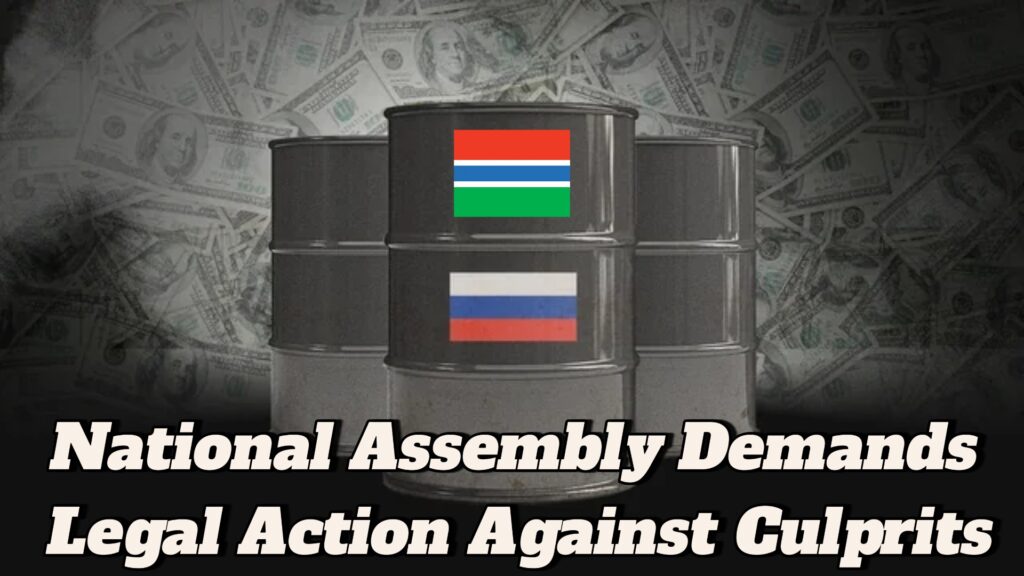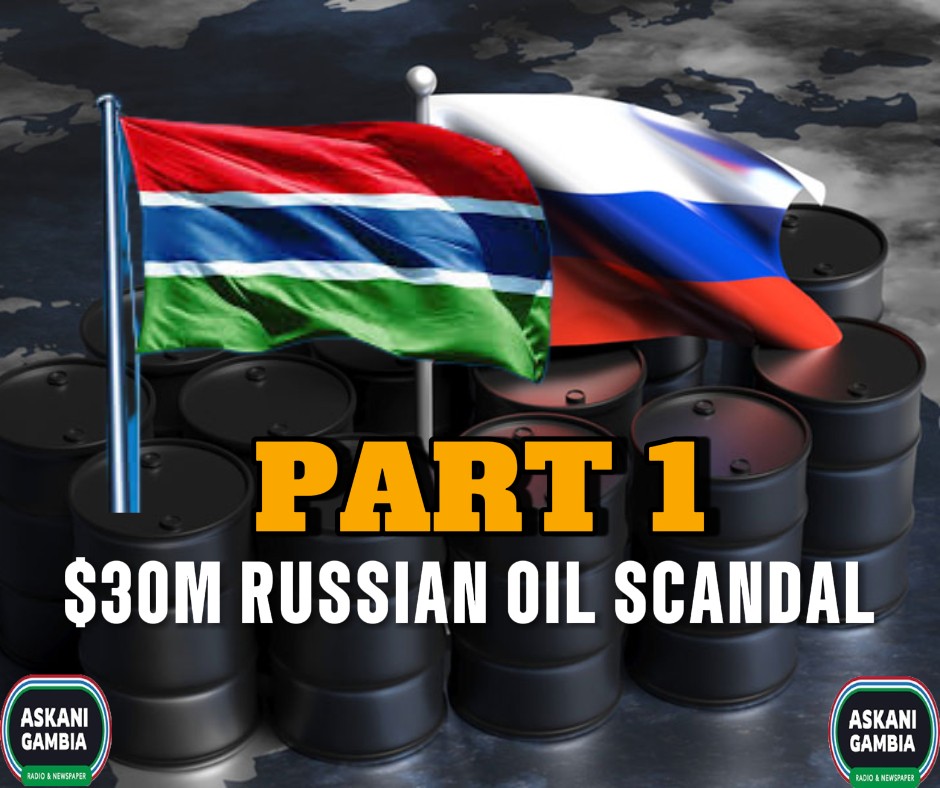
It started as a whisper on social media: ”Thirty million dollars in fuel sold, no records.”
By the time Parliament stepped in, the rumour had become a national question:
Who sold it? Who bought it? And where did the money go?
How the Fire Started
On 22 July 2024, Hon. Sainey Jawara of Sami tabled a motion in the National Assembly demanding an investigation into the alleged sale of 36,953 metric tons of petroleum, valued at roughly USD 30 million, involving three foreign trading firms,
“Apogee FZC, Creed Energy Ltd, and Ultimate Beige Logistics”, working through Gam Petroleum Storage Facility Ltd at Mandinari.
The motion passed with bipartisan support.
Parliament assigned its two watchdog committees, the “Finance and Public Accounts Committee (FPAC)” and the “Public Enterprises Committee (PEC)”, to conduct a Joint Petroleum Inquiry with full investigative powers.
Who They Called and What They Reviewed
Over several months, the joint committee summoned:
• Officials from the Ministry of Petroleum and Energy (MOPE),
• Management of Gam Petroleum,
• Representatives of Apogee FZC, Creed Energy, and Ultimate Beige Logistics,
• Executives of Access Bank, Ecobank, and the Financial Intelligence Unit (FIU),
• Senior officers from PURA, GRA, and GNPC.
They reviewed shipping manifests, storage contracts, customs entries, bank statements, FIU intelligence, and correspondence between the traders and MOPE.
Their conclusion:
”Grave institutional and regulatory failures allowed unauthorised fuel transactions to occur within Gambia’s petroleum system.” Joint Committee Report (2025)
What Triggered the Suspicion
The chain began at Gam Petroleum, a private depot that stores imported fuel for Oil Marketing Companies (OMCs).
In 2023, ships chartered by Apogee FZC offloaded fuel under “storage and re-export” arrangements.
Soon after, Gambian-registered firms began lifting and selling that same stock locally.
When journalists asked how foreign traders gained access to state storage and export rights, *no one had a clear answer.*
The Ministry said the traders acted under Policy *MOPE/GOGP/PP/002*, a directive signed by Minister *Abdoulie Jobe*.
Yet Gam Petroleum’s records showed the depot had *no written approval from the Gambia Petroleum Storage Company Board or PURA*.
The $30 Million Trail
Committee accountants pieced together invoices and shipping data and found three key trading firms at the centre of the transactions. Apogee FZC handled about *14,736 metric tons of fuel, valued at roughly *11.9 million US dollars*, with payments routed through Access Bank Gambia from Dubai. Creed Energy Ltd was responsible for about *12,037 tons, worth around 9.5 million US dollars*, with transfers passing through Ecobank and linked to beneficial owners in Ghana and the United Kingdom. The third trader, Ultimate Beige Logistics, managed approximately *10,180 tons of fuel valued at about 8.6 million US dollars*, issuing invoices in British pounds through a U.K. affiliate connected to Shell subcontracting operations.
Altogether, *close to 30 million US dollars, roughly 1.9 billion dalasis*, moved through Gambian storage, but no matching deposits appeared in the Central Bank or Treasury records.
The Inquiry’s Early Findings
By March 2025, the joint committee had uncovered:
1. Unlicensed trading: Foreign entities selling fuel without Gambian OMC licences.
2. Weak PURA oversight: No real-time inspection of depot stocks or vessel lifts.
3. Gam Petroleum failures: No updated stock reconciliation since 2022.
4. Policy confusion: Ministerial directives contradicted existing petroleum regulations.
5. Bank lapses: USD accounts opened and used without Know-Your-Customer (KYC) verification.
The co-chairs, *Hon. Alhagie S. Darbo (FPAC) and Hon. Lamin J. Sanneh (PEC)*, told Parliament:
”The Committee’s work revealed not merely a transaction, but a system built on trust without control.”
What It Means for Citizens
Fuel is the lifeblood of our economy; every dalasi lost at the depot means higher pump prices and fares.
When fuel is sold off-ledger or taxes are not collected, the Treasury bleeds, and you pay the price twice, once at the pump and again in your taxes.
What FPAC & PEC Recommended Next
1. Full forensic audit of Gam Petroleum and its foreign partners.
2. Immediate review of Minister Jobe’s policy directive (MOPE/GOGP/PP/002).
3. Creation of a National Fuel Trading Register listing all licensed entities.
4. New compliance checks by PURA and GRA before any off-take or re-export authorisation.
Plain Truth
The scandal began with one question: Who authorised the sale?
But as Parliament dug deeper, it uncovered a bigger one: Who controls The Gambia’s fuel economy at all?
The $30 Million Fuel Mystery is no longer just about money. It’s about power, policy, and public trust.
Next Up → Part 2: ” Gam Petroleum — The Epicentre of the Scandal.”
I trace how a single depot became the gateway for unauthorised fuel flows and foreign traders.
By Jallow Modou, Washington D.C., USA – Financial Analyst
Making the Petroleum Inquiry Speak for the People

